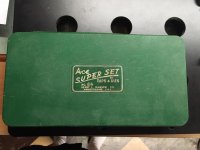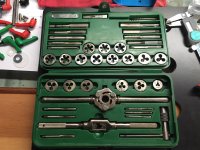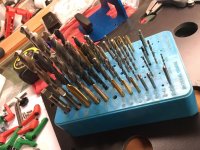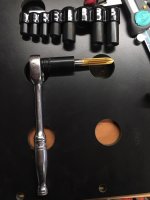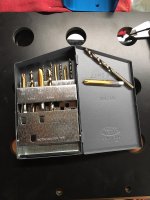[member=44099]Cheese[/member] You know, one of the things that concerns me a bit about chucking these things into a drill is what if I don't have the tap engaged properly when I pull the trigger? As it is I gingerly start the tap and make sure it's engaging the existing threads before I put any force into the tap wrench. I've never cross threaded a tap running it manually (well not one that was in reasonably good shape to begin with). I assume, with a drill, you just start slow and if you feel resistance quickly you back out and try again?

